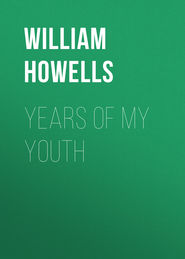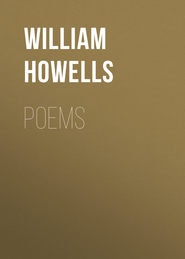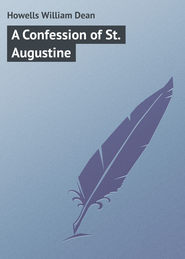По всем вопросам обращайтесь на: info@litportal.ru
(©) 2003-2025.
✖
The Daughter of the Storage
Настройки чтения
Размер шрифта
Высота строк
Поля
"But it's there. And the first thing you know you've loaded yourself up with cake or bread-and-butter and spoiled your appetite for dinner. No, afternoon tea must go with the rest of it, if we're going to be truly civilized. If people could come to one another's tables with full minds instead of stomachs, there would be some excuse for hospitality. Perhaps if we reversed the practice of the professional diner-out, and read up at home as he now eats at home, and – No, I don't see how it could be done. But we might take a leaf from the book of people who are not in society. They never ask anybody to meals if they can possibly help it; if some one happens in at meal-times they tell him to pull up a chair – if they have to, or he shows no signs first of going. But even among these people the instinct of hospitality – the feeding form of it – lurks somewhere. In our farm-boarding days – "
"Don't speak of them!" she implored.
"We once went to an evening party," he pursued, "where raw apples and cold water were served."
"I thought I should die of hunger. And when we got home to our own farmer's we ravaged the pantry for everything left from supper. It wasn't much. There!" Lindora screamed. "There is the taxi!" And the shuddering sound of the clock making time at their expense penetrated from the street. "Come!"
"How the instinct of economy lingers in us, too, long after the use of it is outgrown. It's as bad as the instinct of hospitality. We could easily afford to pay extra for the comfort of sitting here over these broken victuals – "
"I tell you we shall be left," she retorted; and in the thirty-five minutes they had at the station before their train started she outlined a scheme of social reform which she meant to put in force as soon as people began to gather in summer force at Lobster Cove.
He derided the notion; but she said, "You will see!" and in rather more time than it takes to tell it they were settled in their cottage, where, after some unavoidable changes of cook and laundress, they were soon in perfect running order.
By this time Lobster Cove was in the full tide of lunching and being lunched. The lunches were almost exclusively ladies' lunches, and the ladies came to them with appetites sharpened by the incomparable air of those real Lobster Cove days which were all cloudless skies and west winds, and by the vigorous automobile exercise of getting to one another's cottages. They seized every pretext for giving these feasts, marked each by some vivid touch of invention within the limits of the graceful convention which all felt bound not to transcend. It was some surprising flavor in the salad, or some touch of color appealing to the eye only; or it was some touch in the ice-cream, or some daring substitution of a native dish for it, as strawberry or peach shortcake; or some bold transposition in the order of the courses; or some capricious arrangement of the decoration, or the use of wild flowers, or even weeds (as meadow-rue or field-lilies), for the local florist's flowers, which set the ladies screaming at the moment and talking of it till the next lunch. This would follow perhaps the next day, or the next but one, according as a new cottager's claims insisted or a lady had a change of guests, or three days at the latest, for no reason.
In their rapid succession people scarcely noticed that Lindora had not given a lunch, and she had so far abandoned herself to the enjoyment of the others' lunches that she had half forgotten her high purposes of reform, when she was sharply recalled to them by a lunch which had not at all agreed with her; she had, in fact, had to have the doctor, and many people had asked one another whether they had heard how she was. Then she took her good resolution in both hands and gave an afternoon, asking people by note or 'phone simply whether they would not come in at four sharp. People were a good deal mystified, but for this very reason everybody came. Some of them came from somebody's lunch, which had been so nice that they lingered over it till four, and then walked, partly to fill in the time and partly to walk off the lunch, as there would be sure to be something at Lindora's later on.
It would be invidious to say what the nature of Lindora's entertainment was. It was certainly to the last degree original, and those who said the worst of it could say no worse than that it was queer. It quite filled the time till six o'clock, and may be perhaps best described as a negative rather than a positive triumph, though what Lindora had aimed at she had undoubtedly achieved. Whatever it was, whether original or queer, it was certainly novel.
A good many men had come, one at least to every five ladies, but as the time passed and a certain blankness began to gather over the spirits of all, they fell into different attitudes of the despair which the ladies did their best to pass off for rapture. At each unscheduled noise they started in a vain expectation, and when the end came, it came so without accent, so without anything but the clock to mark it as the close, that they could hardly get themselves together for going away. They did what was nice and right, of course, in thanking Lindora for her fascinating afternoon, but when they were well beyond hearing one said to another: "Well, I shall certainly have an appetite for my dinner to-night! Why, if there had only been a cup of the weakest kind of tea, or even of cold water!"
Then those who had come in autos gathered as many pedestrians into them as they would hold in leaving the house, or caught them up fainting by the way.
Lindora and Florindo watched them from their veranda.
"Well, my dear," he said, "it's been a wonderful afternoon; an immense stride forward in the cause of anti-eating – or – "
"Don't speak to me!" she cried.
"But it leaves one rather hungry, doesn't it?"
"Hungry!" she hurled back at him. "I could eat a – I don't know what!"
XV
CITY AND COUNTRY IN THE FALL
A Long-distance Eclogue
1902
Morrison. Hello! Hello! Is that you, Wetherbee?
Wetherbee. Yes. Who are you? What do you want with me?
Morrison. Oh, nothing much. It's Morrison, you know;
Morrison – down at Clamhurst Shortsands.
Wetherbee. Oh!
Why, Morrison, of course! Of course, I know!
How are you, Morrison? And, by the way,
Where are you? What! You never mean to say
You are down there yet? Well, by the Holy Poker!
What are you doing there, you ancient joker?
Morrison. Sticking it out over Thanksgiving Day.
I said I would. I tell you, it is gayDown here.
You ought to see the Hunter's Moon,
These silver nights, prinking in our lagoon.
You ought to see our sunsets, glassy red,
Shading to pink and violet overhead.
You ought to see our mornings, still and clear,
White silence, far as you can look and hear.
You ought to see the leaves – our oaks and ashes
Crimson and yellow, with those gorgeous splashes,
Purple and orange, against the bluish green
Of the pine woods; and scattered in between
The scarlet of the maples; and the blaze
Of blackberry-vines, along the dusty ways
And on the old stone walls; the air just balm,
And the crows cawing through the perfect calm
Of afternoons all gold and turquoise. Say,
You ought to have been with wife and me to-day,
A drive we took – it would have made you sick:
The pigeons and the partridges so thick;
And on the hill just beyond Barkin's lane,
Before you reach the barn of Widow Payne,
Showing right up against the sky, as clear
And motionless as sculpture, stood a deer!
Say, does that jar you just a little? Say,
How have you found things up there, anyway,
Since you got back? Air like a cotton string
To breathe? The same old dust on everything,
And in your teeth, and in your eyes? The smoke
From the soft coal, got long beyond a joke?
The trolleys rather more upon your curves,
And all the roar and clatter in your nerves?
Don't you wish you had stayed here, too?
Wetherbee. Well, yes,
I do at certain times, I must confess.
I swear it is enough at times to make you swear
You would almost rather be anywhere
Than here. The building up and pulling down,
The getting to and fro about the town,
The turmoil underfoot and overhead,
Certainly make you wish that you were dead,
At first; and all the mean vulgarity
Of city life, the filth and misery
"Don't speak of them!" she implored.
"We once went to an evening party," he pursued, "where raw apples and cold water were served."
"I thought I should die of hunger. And when we got home to our own farmer's we ravaged the pantry for everything left from supper. It wasn't much. There!" Lindora screamed. "There is the taxi!" And the shuddering sound of the clock making time at their expense penetrated from the street. "Come!"
"How the instinct of economy lingers in us, too, long after the use of it is outgrown. It's as bad as the instinct of hospitality. We could easily afford to pay extra for the comfort of sitting here over these broken victuals – "
"I tell you we shall be left," she retorted; and in the thirty-five minutes they had at the station before their train started she outlined a scheme of social reform which she meant to put in force as soon as people began to gather in summer force at Lobster Cove.
He derided the notion; but she said, "You will see!" and in rather more time than it takes to tell it they were settled in their cottage, where, after some unavoidable changes of cook and laundress, they were soon in perfect running order.
By this time Lobster Cove was in the full tide of lunching and being lunched. The lunches were almost exclusively ladies' lunches, and the ladies came to them with appetites sharpened by the incomparable air of those real Lobster Cove days which were all cloudless skies and west winds, and by the vigorous automobile exercise of getting to one another's cottages. They seized every pretext for giving these feasts, marked each by some vivid touch of invention within the limits of the graceful convention which all felt bound not to transcend. It was some surprising flavor in the salad, or some touch of color appealing to the eye only; or it was some touch in the ice-cream, or some daring substitution of a native dish for it, as strawberry or peach shortcake; or some bold transposition in the order of the courses; or some capricious arrangement of the decoration, or the use of wild flowers, or even weeds (as meadow-rue or field-lilies), for the local florist's flowers, which set the ladies screaming at the moment and talking of it till the next lunch. This would follow perhaps the next day, or the next but one, according as a new cottager's claims insisted or a lady had a change of guests, or three days at the latest, for no reason.
In their rapid succession people scarcely noticed that Lindora had not given a lunch, and she had so far abandoned herself to the enjoyment of the others' lunches that she had half forgotten her high purposes of reform, when she was sharply recalled to them by a lunch which had not at all agreed with her; she had, in fact, had to have the doctor, and many people had asked one another whether they had heard how she was. Then she took her good resolution in both hands and gave an afternoon, asking people by note or 'phone simply whether they would not come in at four sharp. People were a good deal mystified, but for this very reason everybody came. Some of them came from somebody's lunch, which had been so nice that they lingered over it till four, and then walked, partly to fill in the time and partly to walk off the lunch, as there would be sure to be something at Lindora's later on.
It would be invidious to say what the nature of Lindora's entertainment was. It was certainly to the last degree original, and those who said the worst of it could say no worse than that it was queer. It quite filled the time till six o'clock, and may be perhaps best described as a negative rather than a positive triumph, though what Lindora had aimed at she had undoubtedly achieved. Whatever it was, whether original or queer, it was certainly novel.
A good many men had come, one at least to every five ladies, but as the time passed and a certain blankness began to gather over the spirits of all, they fell into different attitudes of the despair which the ladies did their best to pass off for rapture. At each unscheduled noise they started in a vain expectation, and when the end came, it came so without accent, so without anything but the clock to mark it as the close, that they could hardly get themselves together for going away. They did what was nice and right, of course, in thanking Lindora for her fascinating afternoon, but when they were well beyond hearing one said to another: "Well, I shall certainly have an appetite for my dinner to-night! Why, if there had only been a cup of the weakest kind of tea, or even of cold water!"
Then those who had come in autos gathered as many pedestrians into them as they would hold in leaving the house, or caught them up fainting by the way.
Lindora and Florindo watched them from their veranda.
"Well, my dear," he said, "it's been a wonderful afternoon; an immense stride forward in the cause of anti-eating – or – "
"Don't speak to me!" she cried.
"But it leaves one rather hungry, doesn't it?"
"Hungry!" she hurled back at him. "I could eat a – I don't know what!"
XV
CITY AND COUNTRY IN THE FALL
A Long-distance Eclogue
1902
Morrison. Hello! Hello! Is that you, Wetherbee?
Wetherbee. Yes. Who are you? What do you want with me?
Morrison. Oh, nothing much. It's Morrison, you know;
Morrison – down at Clamhurst Shortsands.
Wetherbee. Oh!
Why, Morrison, of course! Of course, I know!
How are you, Morrison? And, by the way,
Where are you? What! You never mean to say
You are down there yet? Well, by the Holy Poker!
What are you doing there, you ancient joker?
Morrison. Sticking it out over Thanksgiving Day.
I said I would. I tell you, it is gayDown here.
You ought to see the Hunter's Moon,
These silver nights, prinking in our lagoon.
You ought to see our sunsets, glassy red,
Shading to pink and violet overhead.
You ought to see our mornings, still and clear,
White silence, far as you can look and hear.
You ought to see the leaves – our oaks and ashes
Crimson and yellow, with those gorgeous splashes,
Purple and orange, against the bluish green
Of the pine woods; and scattered in between
The scarlet of the maples; and the blaze
Of blackberry-vines, along the dusty ways
And on the old stone walls; the air just balm,
And the crows cawing through the perfect calm
Of afternoons all gold and turquoise. Say,
You ought to have been with wife and me to-day,
A drive we took – it would have made you sick:
The pigeons and the partridges so thick;
And on the hill just beyond Barkin's lane,
Before you reach the barn of Widow Payne,
Showing right up against the sky, as clear
And motionless as sculpture, stood a deer!
Say, does that jar you just a little? Say,
How have you found things up there, anyway,
Since you got back? Air like a cotton string
To breathe? The same old dust on everything,
And in your teeth, and in your eyes? The smoke
From the soft coal, got long beyond a joke?
The trolleys rather more upon your curves,
And all the roar and clatter in your nerves?
Don't you wish you had stayed here, too?
Wetherbee. Well, yes,
I do at certain times, I must confess.
I swear it is enough at times to make you swear
You would almost rather be anywhere
Than here. The building up and pulling down,
The getting to and fro about the town,
The turmoil underfoot and overhead,
Certainly make you wish that you were dead,
At first; and all the mean vulgarity
Of city life, the filth and misery











